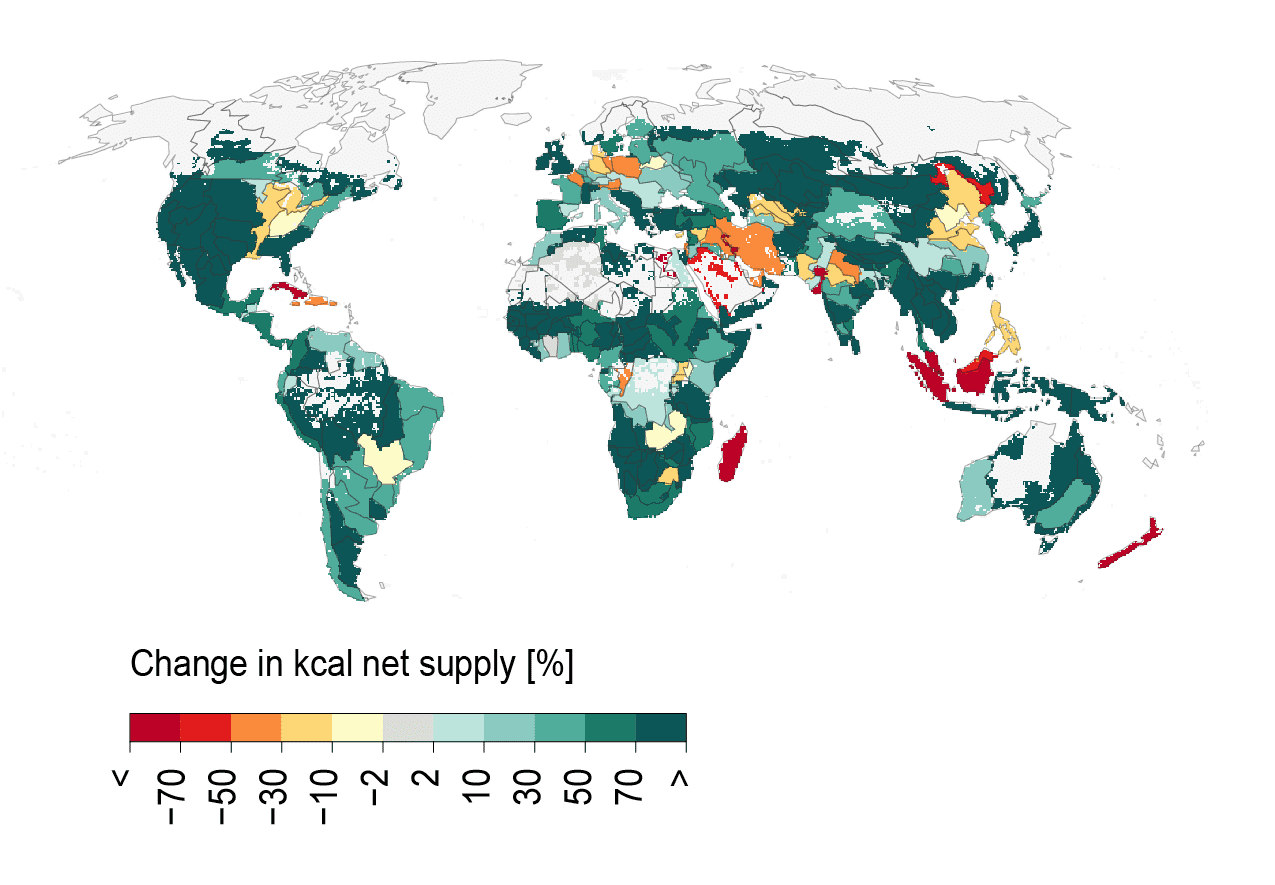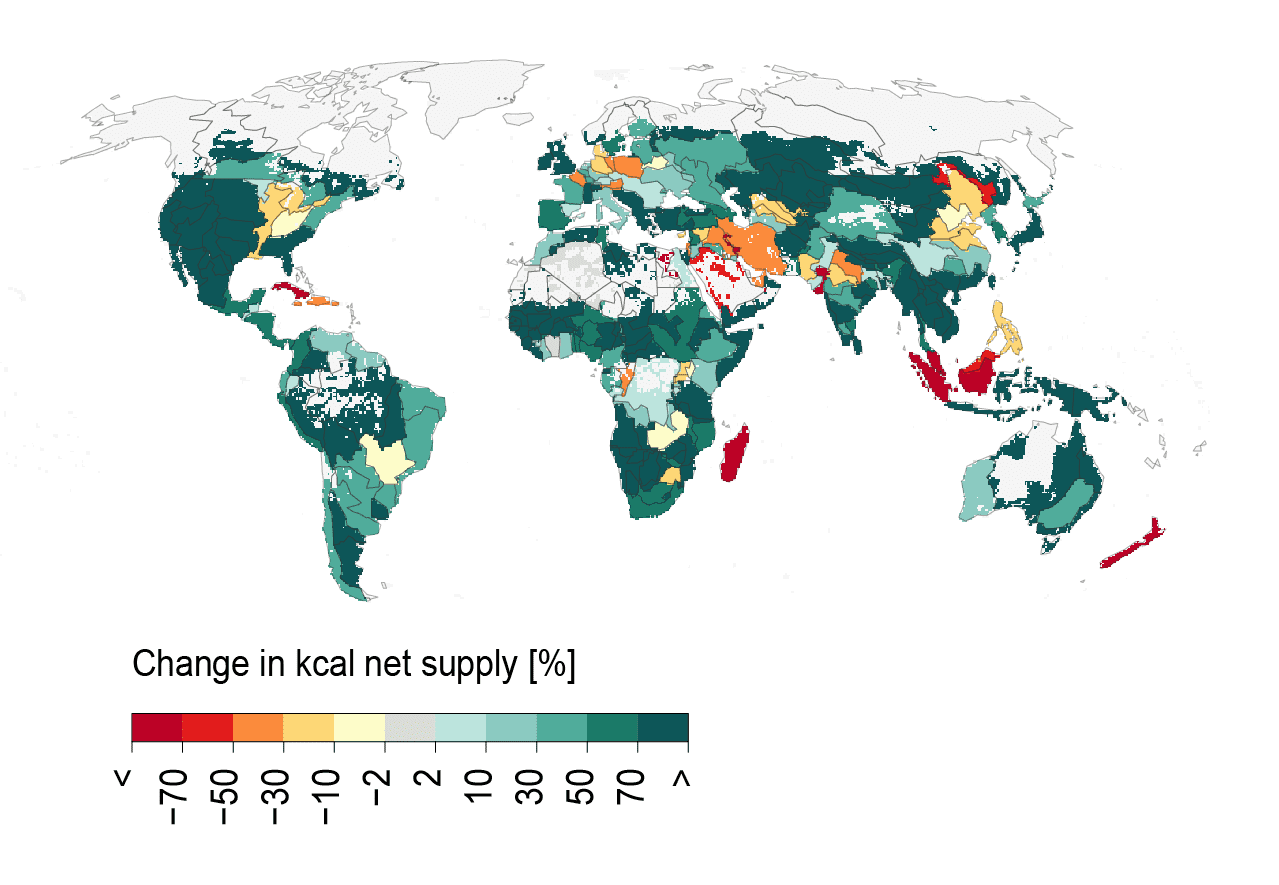
Potential for sustainably recalibrating the food system: Increases in calorie supply are possible in the green-coloured areas; decreases due to overly detrimental food production are shown in red. (Fig. from Gerten et al. 2020)
The Latest Updates from Bing News & Google News
Go deeper with Bing News on:
Feed the world
- PBFA: “The Plant-Based Foods Industry Represents an Opportunity to Re-Envision How We Feed the World”
The Plant Based Foods Association (PBFA) is a pivotal organization in the plant-based food industry, founded with the mission to promote the expansion and ...
- Meet the American who invented the gas-powered tractor, entrepreneur John Froelich, helped feed the world
John Froelich, the oldest son of German immigrants, was born in Iowa in 1849. The grain mill operator tinkered away on a gasoline traction, the tractor, that changed global agriculture.
- Congress must oppose Farmers Feed the World Act to save key hunger program
As a volunteer of Catholic Relief Services, St. Joseph's Church, Babylon Chapter, we have been urging Congress to prioritize the Farm Bill and to oppose the American Farmers Feed the Worl... An online ...
- The Man Who Tried to Feed the World (2020)
The Man Who Tried to Feed the World recounts the story of Norman Borlaug a man who not only solved Indias famine problem but would go on to lead a Green Revolution of worldwide agriculture ...
- Children of Hineahuone feed the world
A Māori agriculture scientist says the food systems need to be seen in terms of tino rangatiratanga and mana motuhake. Jessica Hutchings has organised this week’s He Whenua Rongo symposium at Te ...
Go deeper with Google Headlines on:
Feed the world
[google_news title=”” keyword=”feed the world” num_posts=”5″ blurb_length=”0″ show_thumb=”left”]
Go deeper with Bing News on:
Food production
- Farm and Food: How to win the SAF game: Part 2
The U.S. continues to try to game the system to make corn and soybeans qualify as feedstocks for sustainable aviation fuel.
- Food security is national security
With this in mind, over the winter the U.S. Department of Agriculture released some unsettling numbers. In fiscal year 2023, the United States was a net importer of agricultural products, meaning the ...
- AI Revolutionizes the Future of Food
Artificial intelligence (AI) finds its way into almost every aspect of Americans’ lives. At the end of February, there was a minor scandal regarding fast food burger giant Wendy’s tests ...
- Jefferson Nestlé production facility expanding; $195M project approved
JEFFERSON, Wis. - Nestlé Purina PetCare Company is expanding its production facility in Jefferson after the $195 million project was given the green light by the state. The expansion is expected to ...
- Global Food Extruder Market Valuation to Surpass US$ 87.2 Billion Milestone in 2033, Growing at a Steady CAGR of 3.9% | FMI Study
The global food extruder market is currently holding a significant valuation of US$ 59.6 billion and demonstrating sustained momentum. Projections highlight a steady Compound Annual Growth Rate (CAGR) ...
Go deeper with Google Headlines on:
Food production
[google_news title=”” keyword=”food production” num_posts=”5″ blurb_length=”0″ show_thumb=”left”]










